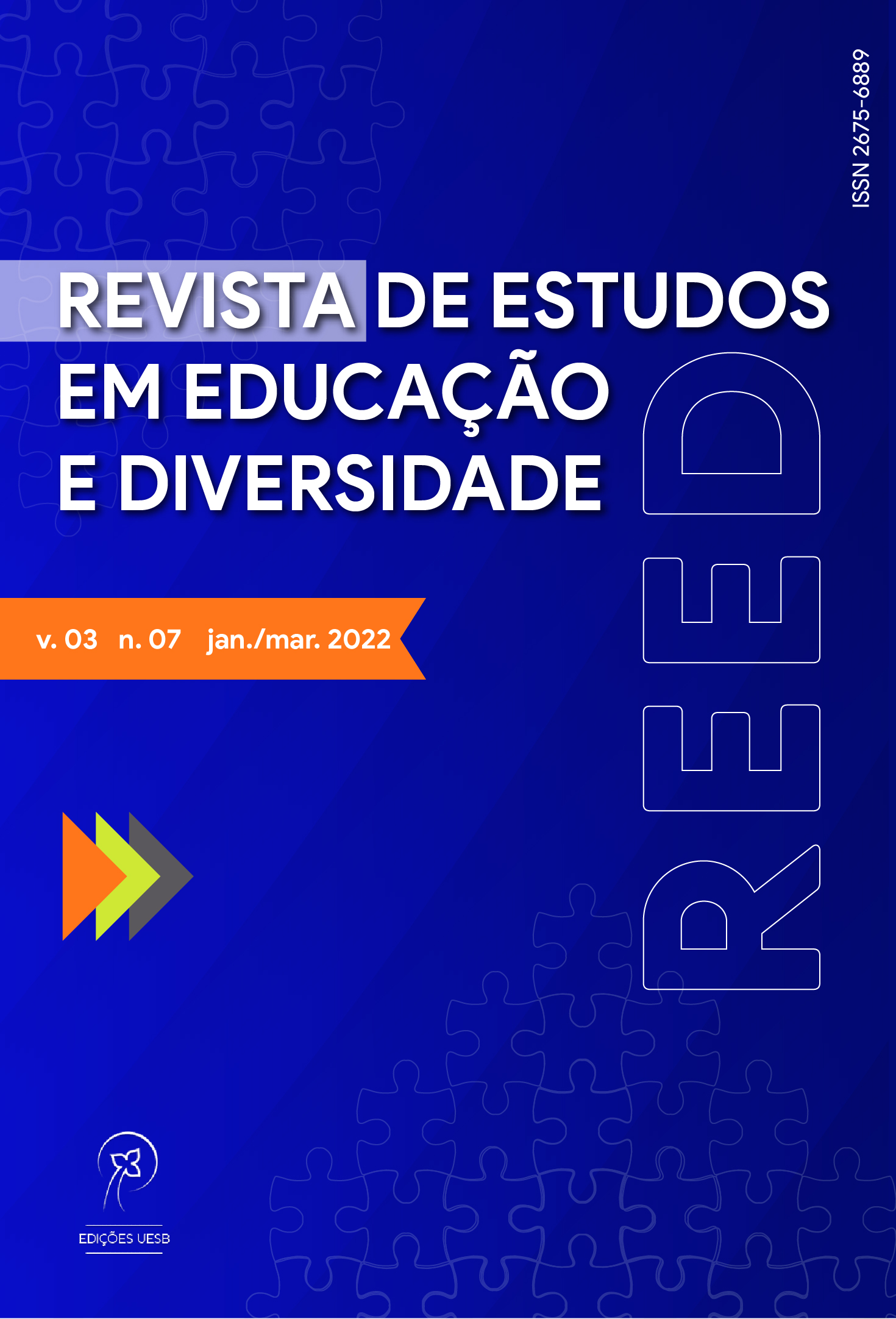AN ANALYSIS OF YOUTUBE VIDEOS ABOUT CHEMISTRY TEACHING IN INDIGENOUS EDUCATION
DOI:
https://doi.org/10.22481/reed.v3i7.10297Keywords:
Indigenous School Education, Science Education, Chemistry teaching, Digital PlatformsAbstract
In a context of widespread use of mobile devices and social networks, even by traditional populations, this article presents the results of an exploratory research whose general objective was to investigate whether and how the discussion on science and chemistry teaching appears articulated to the indigenous school education in videos uploaded to the YouTube platform. We analyzed 36 videos presented on the platform by the relevance filter. Video content analysis was performed by emergent categorization. The categories analyzed were those that emerged in the “floating view”: channels in which the videos appeared, the subjects of speech and the content of the speeches. Although we found important speeches by indigenous intellectuals, most of the videos analyzed have non-indigenous people as subjects of speech. In general, there were few videos that present discussions that can be directly or indirectly related to the teaching of chemistry in the context of indigenous school education. Finally, we found that there still does not seem to be any channel available aimed at teaching science (and/or teaching chemistry) for secondary school students in indigenous education.
Downloads
References
BANIWA, Gersem. Desafios da Educação Indígena: Mais escolas e mais professores. Entrevista ao Observatório da Educação, em 19 de abril de 2021. Disponível em: https://youtu.be/oo1HrHKf4Vc. Acesso em: 15 fev. 2022.
BRASIL. Constituição da República Federativa do Brasil. Brasília, DF: Senado Federal: Centro Gráfico, 1988.
CARLOMAGNO, Marcio; ROCHA, Leonardo da; Como criar e classificar categorias para fazer uma análise de conteúdo: Uma questão metodológica. Revista Eletrônica de Ciência Política, v.6, nº 1, p.173-188, 2016. Disponível em http://dx.doi.org/10.5380/recp.v7i1.45771. Acesso em: 8 mar. 2022
CLASTERS, Pierre. A Sociedade contra o Estado. Tradução Theo Santiago. Editora: UBU, 2017. [Trabalho original publicado em 1974].
IBGE [Instituto Brasileiro de Geografia e Estatística]. Pesquisa Nacional por Amostra de Domicílios Contínua - Acesso à Internet e à televisão e posse de telefone móvel celular para uso pessoal 2019. Rio de Janeiro: IBGE, 2021. Documento digital em: https://tinyurl.com/47mm4vkv. Acesso em: 02 mar. 2022.
INEP [Instituto Nacional de Estudos e Pesquisas Educacionais Anísio Teixeira]. Resumo Técnico do Censo da Educação Superior 2019. Brasília: MEC/INEP, 2021. Documento digital em: https://tinyurl.com/4zbdke8e. Acesso em: 02 mar. 2022.
KAPLAN, A; GOLDSEN, J.M. A confiabilidade das características da análise de conteúdo. Em: LASSWELL, H; KAPLAN, A. (org.) A linguagem da política. Brasília: Editora da Universidade de Brasília, 1982.
KAYAPÓ, Aline. IX Encontro Nacional de Estudantes Indígenas; Pré-evento virtual (Pré-ENEI 28 e 29/2021). Documento digital em: https://enei-evento.com.br/pre-evento. Acesso em: 15 fev. 2022.
KAYAPÓ, Edson. Entrevista à TV Cultura; I Fórum Nacional UFSB, 2015. Documento digital em: https://youtu.be/-xv0QznkQdw. Acesso em: 15 fev. 2022.
MORAES, Roque. Uma tempestade de luz: a compreensão possibilitada pela análise textual discursiva; Ciência e Educação, v. 9, nº 2, pp. 191-211, 2003. Disponível em: https://doi.org/10.1590/S1516-73132003000200004. Acesso em: 12 fev. 2022.
REZENDE, Patrick. Para além do oral e escrito: O caso das reescritas Koitiria. Cadernos de Tradução (Florianópolis), v. 39, n. esp., p.148-170, 2019. Disponível em: https://doi.org/10.5007/2175-7968.2019v39nespp148. Acesso em: 22 mar. 2022
SEED [Secretaria de Educação à Distância]. TV Escola – Relarório 1996 – 2002. Brasília: Ministério da Educação, 2002. Documento digital em: https://tinyurl.com/mrxprfcs Acesso em: 03 mar. 2022.
Downloads
Published
How to Cite
Issue
Section
License
Copyright (c) 2022 Revista de Estudos em Educação e Diversidade - REED

This work is licensed under a Creative Commons Attribution 4.0 International License.
You are free to:
Share - copy and redistribute the material in any medium or format; Adapt - remix, transform, and build from the material for any purpose, even commercially. This license is acceptable for Free Cultural Works. The licensor cannot revoke these freedoms as long as you follow the terms of the license.
Under the following terms:
Attribution - You must appropriately give credit, provide a link to the license, and indicate if any changes have been made. You may do so in any reasonable way, but not in a way that suggests that you or your use is endorsed by the licensor.
There are no additional restrictions - You cannot apply legal terms or technological measures that legally restrict others to make any use permitted by the license.






